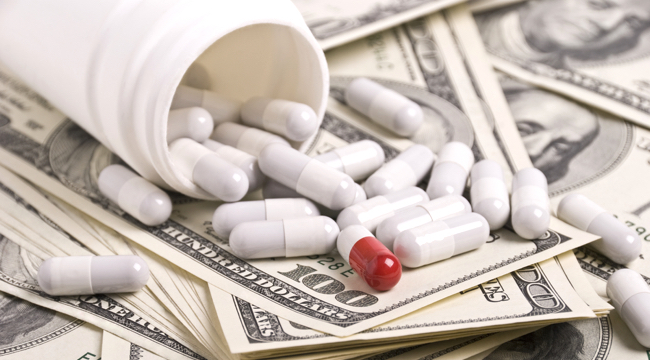
Drug price spikes are back in the news again, but for a good reason this time. No, there isn’t another EpiPen price scandal nor has Martin Shkreli thrown a tantrum (well, not that we know about). Nor are we talking about Health Secretary Tom Price intervening in drug price-related legislation at the same time he bought stock in companies that would benefit from the legislation’s failure (although perhaps everyone should be talking about that).
No, drug prices are back in the conversation because of more good news coming out of France: drug company Sanofi has announced they will keep all future drug price hikes in the United States marketplace at or below the overall US healthcare inflation rate, although they reserve the right to make exceptions when they “have a sound reason for a higher increase.”
Since healthcare spending the the US is projected to increase by 5.4% in 2017, Sanofi has announced they’ll be using this as their limit. Full disclosure: my other job is in a drugstore, and I know from years of experience that few drug companies hike prices by only 5.4% in a year. This is a huge step by Sanofi.
Here’s part of the announcement, which can be read in full here:
It is vital to maintain the trust of all stakeholders to ensure we are able to continue our patient-focused mission. Sanofi is therefore taking a step further toward securing its mission by providing greater transparency around how we make our pricing decisions, and committing ourselves to limited price increases in the U.S. […] To that end, our price increases in the U.S. will be at or below an independent standard measure of health care inflation, the national health expenditures (NHE) growth projection. The NHE is a very tangible measure calculated by the Department of Health and Human Services, which covers spending by all U.S. payers — including individuals. By limiting our price increases to the NHE growth projection, we ensure that Sanofi is not contributing to further medical inflation. In 2017, this would limit our price increases for any given product to 5.4 percent. Given the breadth of our portfolio, we may at times have a sound reason for a higher increase; in such cases, we will provide information publicly to demonstrate the rationale for any such increase.
They went on to say they’ll be disclosing all aggregate gross and net price increases in the U.S. from 2016 onward, in order to “help people understand what aspects of the ultimate cost we can control, and where the levers are controlled by others.” Hmm, that sounds almost as though they don’t trust politicians not to blame drug companies for any failures of their health care bill to properly cover prescription costs. Whatever the reason, we all benefit when a company refuses to kill Peter to pay Paul.






